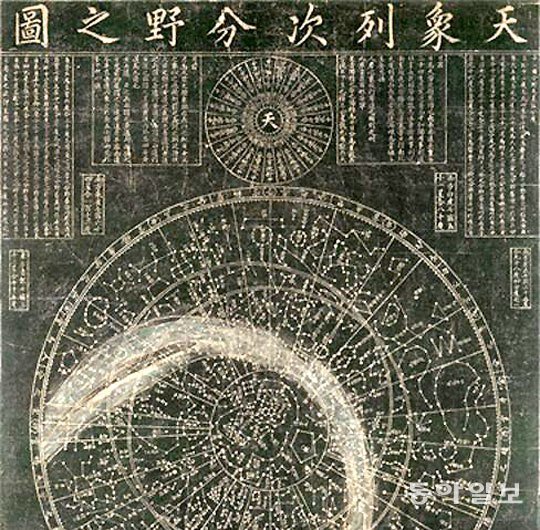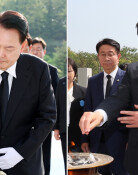A book on Eastern cosmic philosophy published
A book on Eastern cosmic philosophy published
Posted December. 14, 2018 07:42,
Updated December. 14, 2018 07:42

One of the most unforgettable moments for the 2018 PyeongChang Winter Olympic Games was marked by the view of a night sky projecting the AR constellation of Cheonsang Yeolcha Bunyajido, the national treasure No. 228 dubbed the “Daedongyeojido of the Sky,” referring to the map of the Korean Peninsula drawn up by a cartographer named Kim Jeong-ho in 1861. Designed in 1395, the astronomical chart of Cheonsang Yeolcha Bunyajido is studded with 293 zodiac signs and 1,467 stars. By contrast, the number of zodiac signs in the modern constellation list, which was compiled by the International Astronomical Union in 1930 based on Western zodiac signs, stands at 88. Unlike their Western counterparts that are built around myths, the Eastern constellations realistically depict the complexities of human life.
The new book “Men Have the Scent of the Sky” (pictured) introduces the roots of the Eastern astronomy derived from the ancient East Asia, including Korea and China. Authored by Hwang Yoo-seong, a former researcher at Dujeong Astronomical Research Center, the book’s title epitomizes the core concept of Eastern astronomy equating the sky with men.
The book consists of three parts. The first part explores the cosmic mythologies and theories on the cosmic structure. The second chapter, the gist of the book, touches upon the astronomical meaning of the Three Walls and 28 Signs, the traditional zodiac system of the East, and the stories about each zodiac sign. The last part deals with basic calendar theories.
Won-Mo Yu onemore@donga.com







